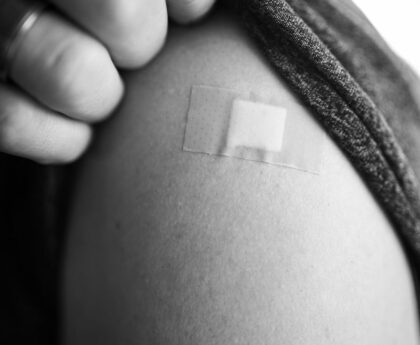UK Carries out First-ever Womb Transplant as Sister Donates Uterus
Historic Medical Procedure
The United Kingdom has made medical history with the successful completion of the country’s first-ever womb transplant. Surgeons at Churchill Hospital in Oxford transplanted a sister’s womb to her 34-year-old sibling in a nine-hour and 20-minute operation. This groundbreaking procedure offers hope to women diagnosed with reproductive conditions that impact their ability to conceive and carry a child to term.
The Recipient’s Journey
The recipient of the womb transplant was diagnosed with Mayer-Rokitansky-Kuster-Hauser (MRKH), a rare condition that affects women’s reproductive systems. In preparation for the transplant, she had previously undergone in vitro fertilization (IVF) and stored her embryos with the hope of becoming a mother in the future. However, her sister, who had already given birth to two children, selflessly volunteered to donate her uterus, enabling the transplant to take place.
Success and Future Outlook
The lead surgeons of the operation expressed their satisfaction with the outcome of the procedure. Richard Smith, the surgeon who led the operation, described it as an unbelievably positive experience and stated that both the donor and recipient were overjoyed. Isabel Quiroga, the other lead surgeon, confirmed that the transplanted womb was functioning perfectly.
It is expected that the transplanted womb will remain in place for a maximum of five years before being removed. During this time, the recipient will need to take immunosuppressant drugs to prevent rejection of the implant. However, this groundbreaking achievement now offers the recipient the possibility of getting pregnant and experiencing childbirth through a Caesarean section. Following the birth, the recipient will have the choice to undergo a hysterectomy or potentially have another child six months later.
Broader Implications
This successful womb transplant opens up new possibilities for women who may otherwise have little hope of experiencing pregnancy and motherhood. The development of womb transplant procedures has been seen in other countries, such as the United States and Sweden. The involvement of more women seeking to donate their uteruses, as reported by the charity Womb Transplant UK, suggests a growing interest in becoming donors to help those in need. As this donor pool expands, the availability of viable uteruses for transplant is likely to increase, leading to more widespread accessibility of this life-changing procedure.
Editorial
A Milestone for Reproductive Medicine
The successful womb transplant in the United Kingdom marks a significant milestone in the field of reproductive medicine. For women who face challenges conceiving due to anatomical abnormalities or other conditions, this breakthrough offers renewed hope and the opportunity to fulfill their dreams of motherhood. The selfless act of the sister who donated her uterus exemplifies the power of familial bonds and the potential for medical advancements to transform lives.
Ethical Considerations
While womb transplants hold immense promise, they also raise important ethical considerations. The procedure requires both a willing donor and a recipient who is physically and emotionally prepared for the challenges and risks associated with transplantation surgery. Additionally, the use of immunosuppressant drugs carries potential side effects and raises questions about the long-term health implications for recipients. Careful consideration must be given to the balance of risks and benefits, ensuring the well-being of both donors and recipients.
Expanding Access and Future Developments
As more women express their willingness to donate their uteruses, it is crucial to establish clear guidelines and protocols to ensure the safety and success of transplant procedures. Collaborative efforts between medical professionals, researchers, and ethicists are essential to navigate the complex landscape of reproductive medicine and address potential challenges and ethical dilemmas that may arise.
Looking ahead, continued advancements in reproductive medicine may lead to further breakthroughs, including the potential for artificial wombs or other alternative gestational methods. As these technologies progress, it is important to approach them with caution, considering not only the scientific possibilities but also the profound societal and ethical implications they entail.
Advice
For Those considering Womb Transplants
For women facing reproductive challenges, the successful womb transplant in the United Kingdom offers a glimmer of hope. If you are considering this procedure, it is crucial to consult with medical professionals who specialize in reproductive medicine and transplant surgery. They can provide guidance, evaluate your eligibility, and discuss the potential risks and benefits specific to your situation. Additionally, it is important to consider the emotional and psychological aspects of the process, seeking support from friends, family, and professional counselors.
For the Medical Community
The achievement of the first-ever womb transplant in the United Kingdom provides a foundation for further exploration and development in the field of reproductive medicine. Collaboration between medical professionals, researchers, and ethicists is vital to address the complex ethical challenges and ensure the safe and ethical expansion of this transformative procedure. It is essential to establish standardized protocols and guidelines that prioritize patient well-being and safeguard against potential risks.
For Society
As a society, we must recognize the profound impact that reproductive technologies and advancements have on individuals and families. Supporting research in this field and providing access to reproductive healthcare options can help individuals facing reproductive challenges achieve their dreams of parenthood. However, it is also important to engage in thoughtful discussions about the ethical considerations surrounding reproductive medicine to ensure that progress is guided by responsible decision-making and a commitment to the well-being of all involved parties.

<< photo by Kelly Sikkema >>
The image is for illustrative purposes only and does not depict the actual situation.
You might want to read !
- Editorial Exploration: Analyzing the developments in Star Wars character Sabine Wren through the lens of Ahsoka’s major change.
Title: “Ahsoka’s Transformative Impact: Unveiling the Evolution of Sabine Wren in Star Wars”
- GTA 6 Leaker Convicted: Unveiling the Guilty Party Behind the Rockstar Games Hack
- GTA 6 Leaker Convicted for Hacking Rockstar Games: Examining the Fallout
- “The Clash of Titans: Inter Miami vs. FC Cincinnati – A Battle for Soccer Supremacy”
- 2023 U.S. Football Clash: How to Watch Inter Miami vs. FC Cincinnati and Predicting the Odds
- Russian Official’s Claim of Yevgeny Prigozhin’s Involvement in Fatal Plane Crash Sparks Investigation




